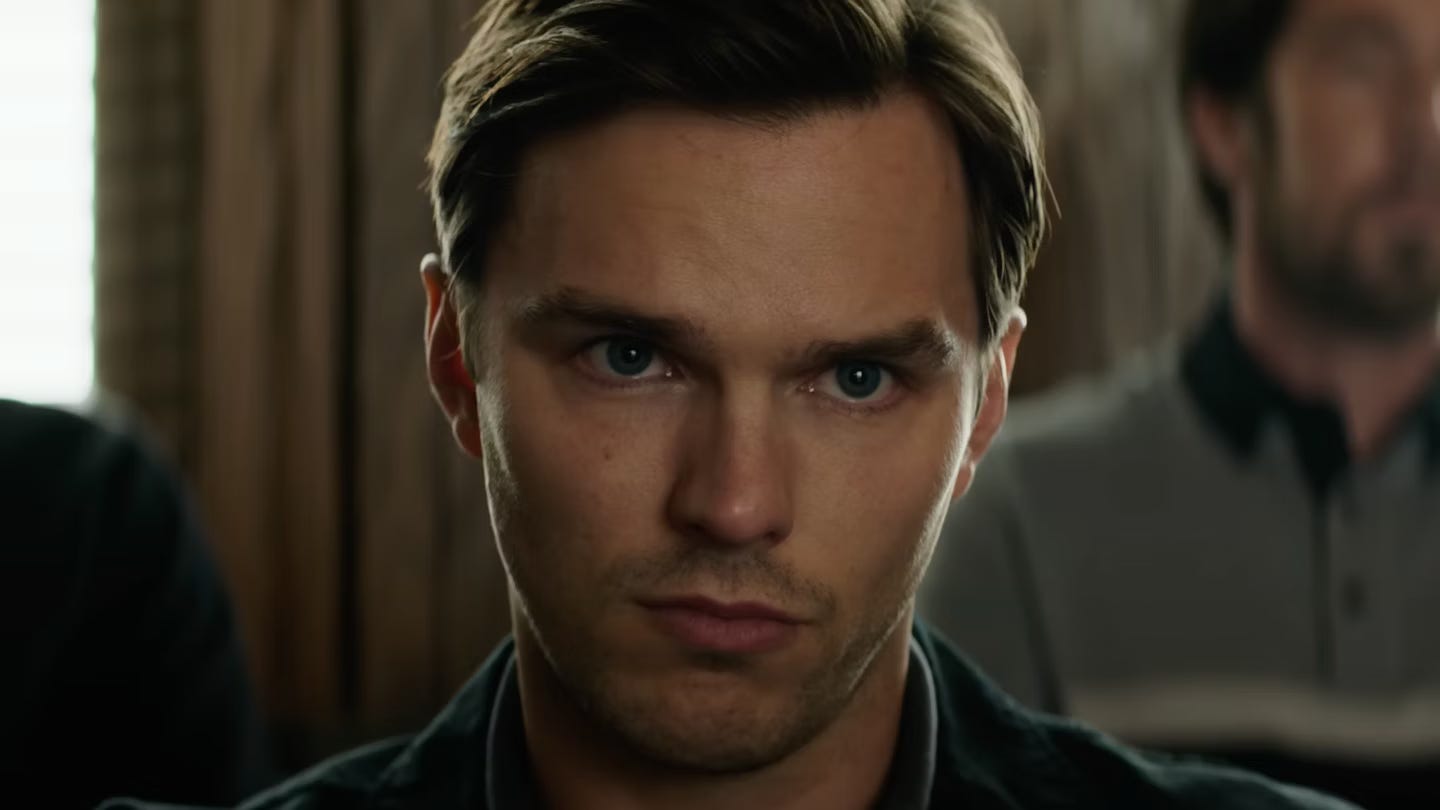Juror #2 review - Nicholas Hoult fights for truth in what might be Clint Eastwood's final film
Juror #2 is potentially Clint Eastwood’s final film and if it is, he has left on a real high. Compared to recent hits such as The Mule and Sully, Juror #2 is a triumph of tension, anxiety and anguish. The film opens with Justin (Nicholas Hoult) and Allison (Zoey Deutch), a couple who are expecting a baby soon. Justin, a recovering alcoholic, has been called up to jury duty which he tries to get out of but the Judge refuses. The jury is told by the judge, the jury system is floored, but it’s the only system of justice we have.
As the trial begins, Justin soon realises he unknowingly committed manslaughter for the case that he is on. Working out he didn’t hit a deer, but rather an innocent victim, whose boyfriend with a violent past is now on trial for. Justin now must hide his guilt and pass this tricky time in his life. Getting over this hump will soon mean he can start his family, but is he able to live with the guilt he is sending an innocent man to life in jail, as well as failing to uphold the truth in a place of court. As he is told by a lawyer friend (Kiefer Sutherland) who runs his Alcoholics Anonymous group, we are only as sick as our secrets. The case, which is thought to have been simple, suddenly becomes more complicated as the film asks: Are truth and justice always symbiotic?
Part of the brilliance of Juror #2 is the use of perspective. The audience is the only ones who have the evidence that Nicholas Hoult has, creating an immediate empathy with the character, whilst also reading into his reactions much deeper than the rest of the characters on screen. As the lawyers played by Toni Collette and Chris Messina paint their picture, Hoult’s mannerisms are that of the guilty man on trial rather than that of an impartial juror. Hoult has the true innocence of the human spirit in his expression, struggling to deal with the guilt of pleading an innocent man guilty, whilst also living with the fact if he confesses he is looking at between 30 years and life in jail.
In the preliminary statements, the film does a strong job of playing with perspective. The same scenes play out slightly differently, whilst statements are intercut together to create a frantic energy in a well-edited scene, in what is an overwhelmingly anxious trial.
Eastwood pays heavy homage to Sidney Lumet’s 12 Angry Men with a jury that is lackadaisical, willing to ruin a man’s life so that they can get home to their kids. However, similarly to the Lumet classic, there are a few figures who remind the jury of their duty to at least talk about the case for a few hours. What looked like an easy escape for Justin suddenly becomes more complicated as they look into more possibilities than the obvious one presented during the case. Each character is unique, with JK Simmons former police detective being the eager beaver looking into car registration numbers against his oath as a juror to gain further knowledge of the case. Other members of the case bring their own backgrounds into the case showing how the jury used their personal lives to influence the facts stated in the case to create a compelling critique of the jury system.
One of the major flaws of the film is stylistic. It lacks colour or aesthetic with much of the film shot in mediums with a depth of field that gives coverage rather than specificity. It is the narrative driving our eager eyes forward rather than anything visually.
There is plenty of fat to trim off the bones of this feast. There is a subplot about an election of a DA that doesn’t go anywhere and the second act struggles to gain much momentum. It probably could have been 10-15 minutes shorter, whilst it felt frustrating that Justin wouldn’t confide in his wife. He is an honest man to the core, and to his detriment. The film also has an ambiguous ending, and whilst I am all for it, it felt as if the film was all wrapped up and through in an unnecessary final scene, and although I thought about the lingering final shot, the anxious thoughts that Eastwood was beginning to conclude with were enough to keep my mind on the film past the credits.
Juror #2 is my favourite of Eastwood’s recent directorial attempts. A film that is gripping and anxious to hold your attention in a thrilling narrative. Whilst it has its stylistic struggles, strong performances from the likes of Nicholas Hoult and Toni Collette make this a compelling watch that will be a crowdpleaser with the masses. A timeless tale of the imperfect nature of the jury and justice system.



